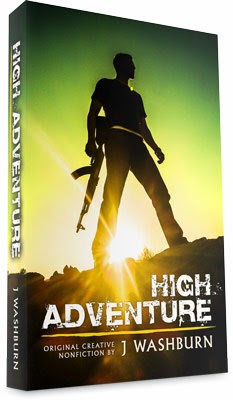
Matthieu Ricard, a Frenchman, earned a Ph.D. in molecular genetics—so his origins are based firmly in science and intellect. When he began searching for a missing piece, he found answers in Buddhism.
Happiness is a scientific look at obtaining the supreme emotion, which he defines as follows:
“By happiness I mean here a deep sense of flourishing that arises from an exceptionally healthy mind. This is not a mere pleasurable feeling, a fleeting emotion, or a mood, but an optimal state of being. Happiness is also a way of interpreting the world, since while it may be difficult to change the world, it is always possible to change the way we look at it.”

He includes parables from the buddhist tradition and personal stories. Here’s one that reminded me of Avatar Aang:
“I remember one afternoon as I was sitting on the steps of our monastery in Nepal. The monsoon storms had turned the courtyard into an expanse of muddy water and we had set out a path of bricks to serve as stepping-stones. A friend of mine came to the edge of the water, surveyed the scene with a look of disgust, and complained about every single brick as she made her way across. When she got to me, she rolled her eyes and said, ‘Yuck! What if I’d fallen into that filthy muck? Everything’s so dirty in this country!’ Since I knew her well, I prudently nodded, hoping to offer her some comfort through my mute sympathy. A few minutes later, Raphaèle, another friend of mine, came to the path through the swamp. ‘Hup, hup, hup!’ she sang as she hopped, reaching dry land with the cry ‘What fun!’ Her eyes sparkling with joy, she added: ‘The great thing about the monsoon is that there’s no dust.’ Two people, two ways of looking at things; six billion human beings, six billion worlds.”
One of my favorite metaphors was this: Imagine the sea roiling and enraged with giant waves. Now dive beneath that surface and discover that underneath the water the sound and fury and motion have all been stilled. That’s the inner peace that Po from Kung Fu Panda was looking for, the deeper stillness that exists even during immense storms.
By the way, as of this writing, I have meditated for 10-15 minutes for 227 consecutive days. (This was inspired by The Happiness Advantage and The Power of Now, two of my favorite books.) Mostly I do breathing and presence exercises. But this book helped me understand compassion meditation better. If you want to know more, I plan to write an essay about meditation at some point, as soon as I reach Nirvana. In the meantime, here’s the foundational principle: To my understanding, all meditation rests on meta-consciousness, that is, being aware of what you’re thinking about. Again, I don’t expect you to deeply grasp it in this review, but here’s a preview from a master:
“Buddhism... stresses enhanced awareness of the formation of thoughts, which allows for the immediate identification of an angry thought as it arises, and for its deconstruction the next instant, the way a picture drawn on the surface of water melts away as it is sketched.”
I really like Buddhism. It has taught me a lot of cool concepts, for example, the perspective on self-control:
“If a sailor looses the tiller and lets the sails flap in the wind and the boat drift wherever the currents take it, it is not called freedom—it is called drifting. Freedom here means taking the helm and sailing toward the chosen destination.”
Okay, that’s all I got. Thanks for reading!
If you have friends who will like these book reports, send them here: http://theinformant.jwashburn.com.

Get a FREE COPY of HIGH ADVENTURE
and sign up for my newsletter:

No comments:
Post a Comment
What was your favorite part of this post?
— J